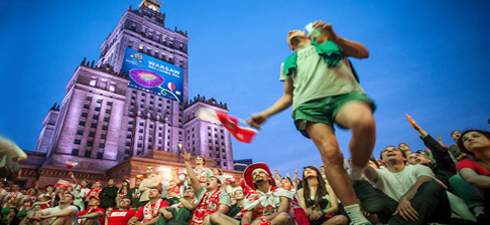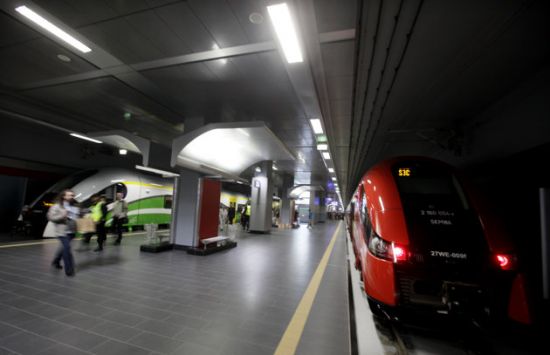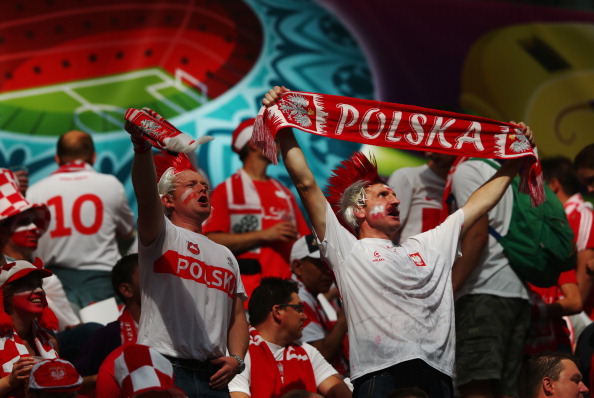By Duncan Mackay
November 25 – Poland’s successful co-hosting of the UEFA European Championships earlier this year is likely to have a bigger long-term impact on the economy there than Barcelona reaped from staging the 1992 Olympics and Paralympics, it has been claimed.
The tournament, which Poland co-hosted with neighbours Ukraine, is being credited with kick-starting the country’s infrastructure and helping promote its image on a global stage.
“We think the ‘Poland Effect’ is something more than the ‘Barcelona Effect’,” said Marcin Herra, the chief executive of PL.2012, who oversaw the build-up to and staging of matches in Poland.
“Barcelona was essentially about boosting tourism, but in Poland it’s been about the economy overall, the infrastructure, and know-how.
The “Barcelona Effect” was a term coined by economists’ for the long-term positive economic effect of major events, like the Olympics and World Cup, and has been used as the model by bidding cities and countries ever since.
Euro 2012 set the record for both the highest aggregate attendance (1,440,896) and the highest average attendance per game (46,481) under the 16-team format.
A total of 677,000 attended matches in Poland and spent an estimated 1.1 billion zloty (£213 million/$341 million/€266 million), 33 per cent more than forecast.

The tournament kicked-off in Warsaw’s National Stadium with a 1-1 draw between hosts Poland and Greece.
Warsaw was one of four cities to stage matches in Poland, along with Gdańsk, Poznań and Wrocław.
A total of 15 matches were staged in the country, including the semi-final between Germany and Italy, which the Italians won 2-1.
“I think the long-term impact of Euro 2012 is the most important part of the success story,” said Jakub Borowski, chief economist at Kredyt Bank and a lecturer at Warsaw School of Economics, told AFP.
Borowski, the lead author for a 2010 survey on Euro 2012’s potential impact, claimed that hosting the tournament ensured that the pace of change in Poland was significantly quicker than it would have been otherwise.

“If we hadn’t had Euro 2012, we would have improved our infrastructure, but it would have taken longer,” he said.
“Between two and three years longer,
“Because we have a better quality of infrastructure earlier, we receive an earlier gain in terms of higher productivity in the whole economy.
“It’s about front-loading productivity,”
According to the London-based Brand Finance Institute, Euro 2012 helped lift Poland up its 100-nation ranking, from 24th to 20th.
In financial terms, the value of the Brand Poland jumped 75 per cent.
A survey carried out at the end of the tournament by the PBS Institute in Poland discovered that 92 per cent of foreign supporters polled claimed that they would recommend it for a holiday and 80 per cent wanted to come back.
It is estimated that an extra 766,000 tourists will visit the country as a result through until 2020.
Poland currently has three million tourists a year.
“The impact on our image is going to be long-term,” said Joanna Mucha, Poland’s Sport and Tourism Minister.
Contact the writer of this story at zib.l1751593993labto1751593993ofdlr1751593993owedi1751593993sni@y1751593993akcam1751593993.nacn1751593993ud1751593993

